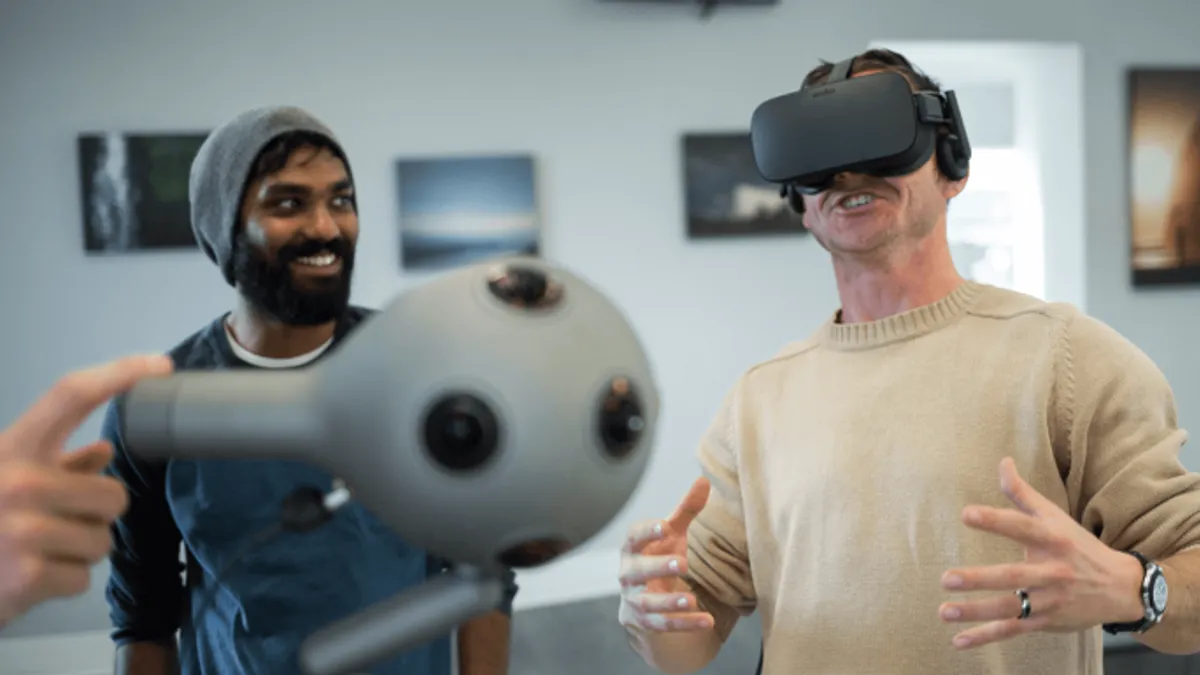Dive Brief:
- XPO Logistics shared the results of a virtual reality training pilot that yielded promising results, according to the company. In a Jan. 5 announcement, the global logistics company reported the use of Oculus headsets "to train cross-dock workers in the optimal method of loading freight for delivery."
- Deployed for the company’s "less-than-truckload" (LTL) employees, the pilot identified numerous benefits: higher productivity, lower waste and increased safety, as well as "shorter ramp-up times" for new trainees.
- XPO Logistics also said it plans to expand the use of VR training in "areas such as diversity and inclusion training and remote selling" and that it also uses augmented reality (AR) in other parts of the company.
Dive Insight:
Analysts have been predicting a rise in VR and its use in training, specifically. According to a survey from the World Data Forum, 66% of U.S. companies are planning to adopt AR and VR by 2022.
Amid the coronavirus pandemic, adoption of learning technology and e-learning has increased and VR represents one of the opportunities to deliver effective training to distributed workforces. Hilton has used VR to train hotel employees. VR and AR technology can also enable employers to improve inclusion by increasing accessibility and is also increasingly being used in the recruiting process as well.
In a recent opinion piece for HR Dive, Booz Allen Hamilton leader Sandra Marshall pointed out that a wide range of companies are using VR for training, including healthcare, manufacturing, military and many others that operate complex machinery at work. Marshall added that VR is ideal for tasks that are "repeatable and experience-based" and the technology also offers the benefits of data collection and scalability.












